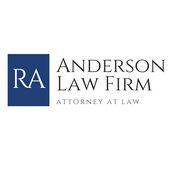
Insolvency and bankruptcy are both terms that can define a person’s insecure financial situation when they are struggling to repay debts. While these words are often used interchangeably, they each carry unique meanings that determine how a person can resolve their outstanding debt. If you think you may need to file for bankruptcy, review this quick comparison between the two to better understand your options—and how an attorney can help you move forward.
Insolvency
Insolvency refers to situations when a person is unable to pay debts and cover expenses. Typically, this occurs when someone isn’t bringing in enough income to pay their monthly bills and afford essentials such as food, rent, clothing, medical care, and transportation. People can become insolvent for many reasons, including being laid off unexpectedly, losing assets that weren’t protected by insurance, suffering emergency medical costs, or waiting for outstanding payments from a legal settlement.
Insolvency can be solved through several methods, depending on the degree of severity. In some cases, individuals may reduce expenses by hiring an attorney to negotiate repayment terms with a creditor or pursue debt consolidation. Others may sell off assets or pursue new employment to catch up.
Bankruptcy

Bankruptcy is for when an individual cannot overcome their insolvency because they are unable to reasonably repay debts or resolve them through other means. When a person files for bankruptcy, they are taking legal steps to eliminate or restructure debts so they can reestablish a stable financial footing. Depending on the situation, an individual may file for Chapter 7 or Chapter 13 bankruptcy.
Chapter 7 is reserved for those who earn below the state’s median income or can prove they aren’t earning enough to cover necessary expenses. If successful, Chapter 7 can eliminate many unsecured debts, such as outstanding credit cards or medical bills. In many cases, assets like homes or vehicles may be sold to help repay creditors.
Those who don’t qualify for Chapter 7 may instead pursue Chapter 13 bankruptcy with the help of an attorney. This approach often allows individuals to retain personal property, but instead of excusing debts, it restructures them to simplify repayment over a specific period.
If debt is leading you to file for bankruptcy, Anderson Law Firm in Archdale, NC, will help you navigate the process. Specializing in bankruptcy law, these attorneys have faithfully assisted clients throughout High Point for 20 years. They will assess your situation to determine if Chapter 7 or Chapter 13 fits your needs, and they can help with alternative solutions like debt consolidation. Visit the firm online to learn more about their services, or call (336) 431-7336 to schedule a free initial consultation.
The information contained in this site is for general guidance on matters of interest only. The application and impact of laws can vary widely based on the specific facts involved. We are a Debt Relief Agency. We help people file for Bankruptcy Relief under the Bankruptcy Code.
About the Business
Have a question? Ask the experts!
Send your question

